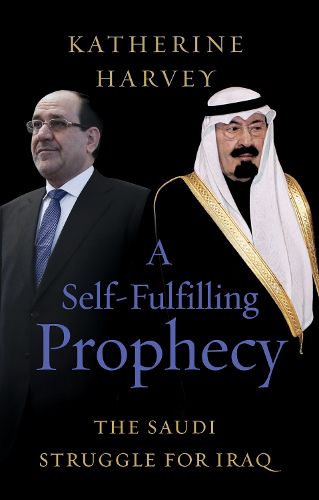Readings Newsletter
Become a Readings Member to make your shopping experience even easier.
Sign in or sign up for free!
You’re not far away from qualifying for FREE standard shipping within Australia
You’ve qualified for FREE standard shipping within Australia
The cart is loading…






In recent years, the geopolitical rivalry between Saudi Arabia and Iran has dominated the headlines. Many have charted the polarisation between a Saudi-led Sunni camp and an Iranian-led Shia one, assuming that a predominantly Shia state like Iraq would automatically ally with Iran. In this compelling account, Katherine Harvey tells a different story: Iraq’s alignment with Iran was not a foregone conclusion. Rather, Saudi efforts to undermine Iran have paradoxically empowered it.
Harvey investigates why the Saudis refused to engage with Iraq’s post-2003 Shia-led government, despite continual outreach by Iraq’s new leaders and considerable pressure from the United States. She finds that certain deeply ingrained assumptions predisposed Saudi leaders to see a Shia-led Iraq as naturally beholden to Iran: the view that Iran is inherently expansionist, and the belief that Arab Shia tend to be loyal to it. This outlook was simplistic, even downright inaccurate; and, in refusing to engage, the Saudis created a self-fulfilling prophecy.
As Harvey demonstrates, members of Iraq’s new government initially sought to establish a positive relationship with Saudi Arabia, and to pursue a course independent from Iran. But, isolated and rejected by Saudi King Abdullah, Iraq ultimately had nowhere else to turn.
$9.00 standard shipping within Australia
FREE standard shipping within Australia for orders over $100.00
Express & International shipping calculated at checkout
In recent years, the geopolitical rivalry between Saudi Arabia and Iran has dominated the headlines. Many have charted the polarisation between a Saudi-led Sunni camp and an Iranian-led Shia one, assuming that a predominantly Shia state like Iraq would automatically ally with Iran. In this compelling account, Katherine Harvey tells a different story: Iraq’s alignment with Iran was not a foregone conclusion. Rather, Saudi efforts to undermine Iran have paradoxically empowered it.
Harvey investigates why the Saudis refused to engage with Iraq’s post-2003 Shia-led government, despite continual outreach by Iraq’s new leaders and considerable pressure from the United States. She finds that certain deeply ingrained assumptions predisposed Saudi leaders to see a Shia-led Iraq as naturally beholden to Iran: the view that Iran is inherently expansionist, and the belief that Arab Shia tend to be loyal to it. This outlook was simplistic, even downright inaccurate; and, in refusing to engage, the Saudis created a self-fulfilling prophecy.
As Harvey demonstrates, members of Iraq’s new government initially sought to establish a positive relationship with Saudi Arabia, and to pursue a course independent from Iran. But, isolated and rejected by Saudi King Abdullah, Iraq ultimately had nowhere else to turn.